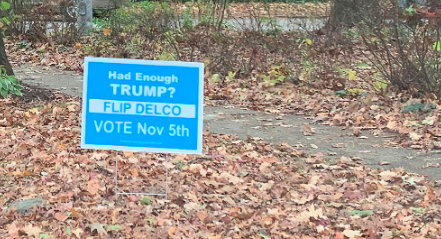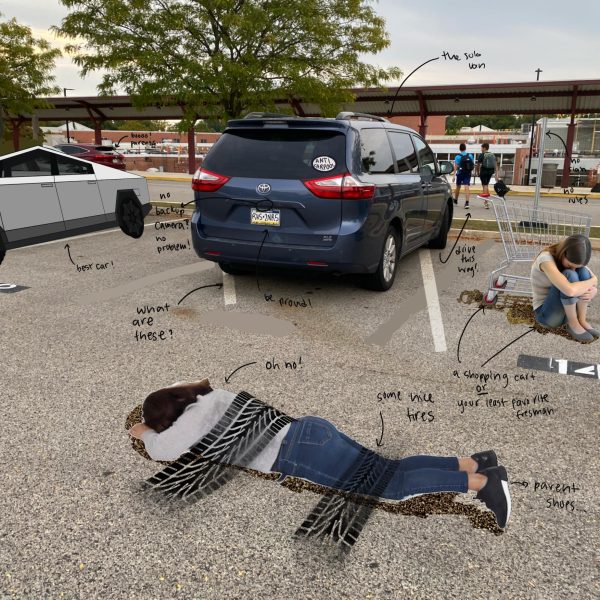Why Delaware County Flipped

November 19, 2019
Among the many lawn signs plastered all over Radnor leading up to the local November 5th elections, there was one in particular that stood out, noted mainly for its boldness. Not only was it proposing a goal that so many thought impossible, but it displayed the name, the same name that is consistently flooding the headlines almost every day, the name that can so instantly incite love or fear in the minds of those who hear it. The stunningly blue and surprisingly forward sign read, “Had Enough Trump? FLIP DELCO. VOTE November 5th”
Donald Trump’s victory during the 2016 presidential election will go down as one of the most controversial in American history. The country was split in half, causing one’s party to matter more than it had ever previous to his inauguration. Never before has the difference between being a Republican or a Democrat so greatly influenced the local school board or judicial elections of small towns. However, as so many were able to witness through both the campaign cycle and the results of this past 2019 election on November 5t, party affiliation and opinions on the executive office seem to have been affecting the people of Radnor more and more. The aforementioned sign is an example of the Democratic party using the reputation of the president as their platform for change, a sort of fuel that they needed for a new blue wave.
In 2016, the state of Pennsylvania turned bright red as the election results for the new president came flooding in. Overall, it was an exceptionally challenging election year for both parties. Clinton and Trump were polar opposites, making it difficult for people to select their candidates. As a result of this, the turnout hit a 20-year low with only 55% of eligible voters actually exercising their ballot-casting right. When Trump came out victorious, it served as a wake-up call to many American citizens who had decided to avoid their voting stations in an effort to stay uninvolved in the chaotic political climate. It became clear in the eyes of many who had never expected Trump to actually win that, in order to make a change in your community or bring about a certain civil goal, they actually needed to participate on election day.
The wave the Democrats planned for this past election day was incredibly ambitious; Republicans have been in control of the Delaware County Council since before the Civil War. Radnor itself is a mostly upper-class, old money, 82% white, suburban community; not exactly prime material for Democrats to sweep, considering, historically, the demographics of our town mainly consist of those who sway Republican. However, when the votes were totaled, they achieved what seemed impossible. For the first time in over 100 years, the politicians sitting on the Delco Council are all Democrats. The seemingly impossible goal of the blue sign was achieved, a feat many could never have imagined before. This outcome is a sure sign that change is brewing in America; if the happenings in the White House are capable of influencing small-town elections like this, there is a good chance this phenomenon will be reflected in the presidential election of 2020.
So what does the win really symbolize for our nation? It means that in this age, the politics at the very top of the spectrum can ricochet down and affect even low-level government. With Trump in the beginning stages of an impeachment trial, the uneasiness with our current administration is dangling over people’s heads, causing many to take action and exercise their constitutional right to vote. These people, those who had so clearly, “had enough of Trump,” are the reason the Democrats were successfully able to secure their victory and “flip Delco.”
On the other hand, to counter the Democrats’ strategy of using national disdain for Trump as an election tool, local Republicans based their campaign on the ideal “Vote the Person, not the Party,” in an attempt to combat the looming and inevitable blue wave. While this may seem like a valid point, once elected, local politicians enter a pipeline that can lead them to state or even national positions. In those seats, people are not often voting as their own person, but instead as a member of a larger party trying to achieve what they collectively believe. This pipeline is partly why national politics affect small communities. When casting their ballots, voters may be electing the next state senator, congressman, or even presidential candidate. Everyone has to start somewhere, and local constituents have the power to give these politicians their premier political boost.






